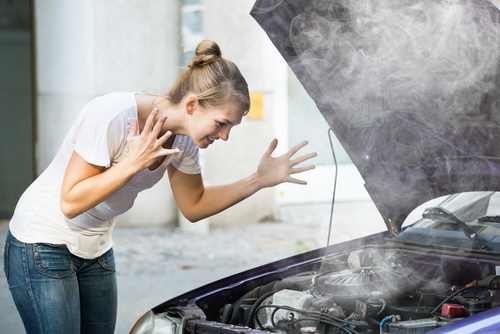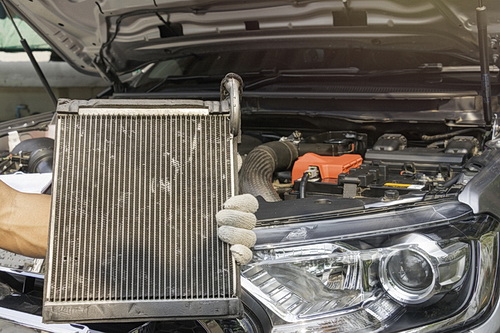Before we begin, we need to note that if you have an electric vehicle (EV), this information will not apply, since EVs don’t have radiators and subsequently, cannot overheat, but if you do have a conventional gas car, the information supplied below can be very helpful so that you don’t get stuck with a radiator that overheats.
Overview

When it comes to nightmares for conventional car owners, engine overheating is probably on your list. If you want to avoid regular car repairs, proper maintenance is necessary, including keeping your vehicle’s radiator in tip-top shape.
However, before you do that, you need to understand why your car’s radiator can overheat. There are many different causes of engine overheating.
The following are the most common causes.
Your Car’s Radiator
Gas engines can get very hot. This is because energy is discharged as the spark plugs ignite causing the pistons to make their repetitive up-and-down motion.
To keep the heat energy from getting out of control, the engine block is constantly being cooled via engine coolant that circulates the engine. The coolant liquid that resides in the radiator helps reduce the heat within the enginean so that it doesn’t overheat.
The radiator is one of the key components of the cooling system that is responsible for keeping your engine cool. It is an enclosed vented chamber containing channels for the fluid (normally water) that transfers heat from one location to another more efficiently than if there were no intermediary medium at all.
Radiators are most commonly used in automobiles with internal combustion engines, but they are also found in other applications such as air conditioning systems, industrial process cooling, and heating systems in homes.

Low Coolant
But what if there is no coolant available?
Low or no coolant in the radiator is the leading cause of engine overheating; therefore, it is vitality important that you regularly check your coolant and fill it up if it’s low. Moreover, this is especially important in the summer.
Poorly Working Electric Fan
Apart from a low coolant level, another thing that often causes engine overheating is a defective electric fan. At times, your fan will burn and will stop working. Therefore, you must regularly check whether the fan motor of your car is working.
Broken Fan Belt
Your car will overheat if its fan belt is broken. Usually, a fan belt is found in older cars, and fixing it is easy. Also, by looking at the engine, you can easily tell whether or not you have a broken fan belt.
Leaky Water Pump
Look beneath the car when you stop it in case your vehicle continues to overheat regardless of what you do. You may have a water leak from the pump if you witness a significant amount of liquid beneath your car.
Check the coolant level in the radiator. If it is low on more than one occasion, it is most likely that you have a leaky water pump. To test this out, make sure your radiator is filled with coolant, and then take the car for a short drive. If your coolant keeps going low then you most likely have a water pump that is not functioning properly. If this is the case go to your repair shop as soon as possible and get it fixed.
Blocked Radiator
If your car has over 50,000 miles, then there’s a good chance that the radiator is filled with gunk, preventing it from running properly. Solving this problem is easy. All you have to do is flush your radiator. If you flush your car’s radiator once a year, you will prevent it from getting blocked. Best to have your mechanic do this for you.
Thermostat That Does Not Open
At low speeds, thermostats do not need to come into play. However, once you push the accelerator, the thermostat must open to allow more coolant to flow through. If that does not happen then your car is likely to get overheated.
There you have it—why your car overheats. Regardless of what causes it, you must get an overheated engine fixed as soon as possible.
Going to your local car repair shop is your best bet for doing it right.
